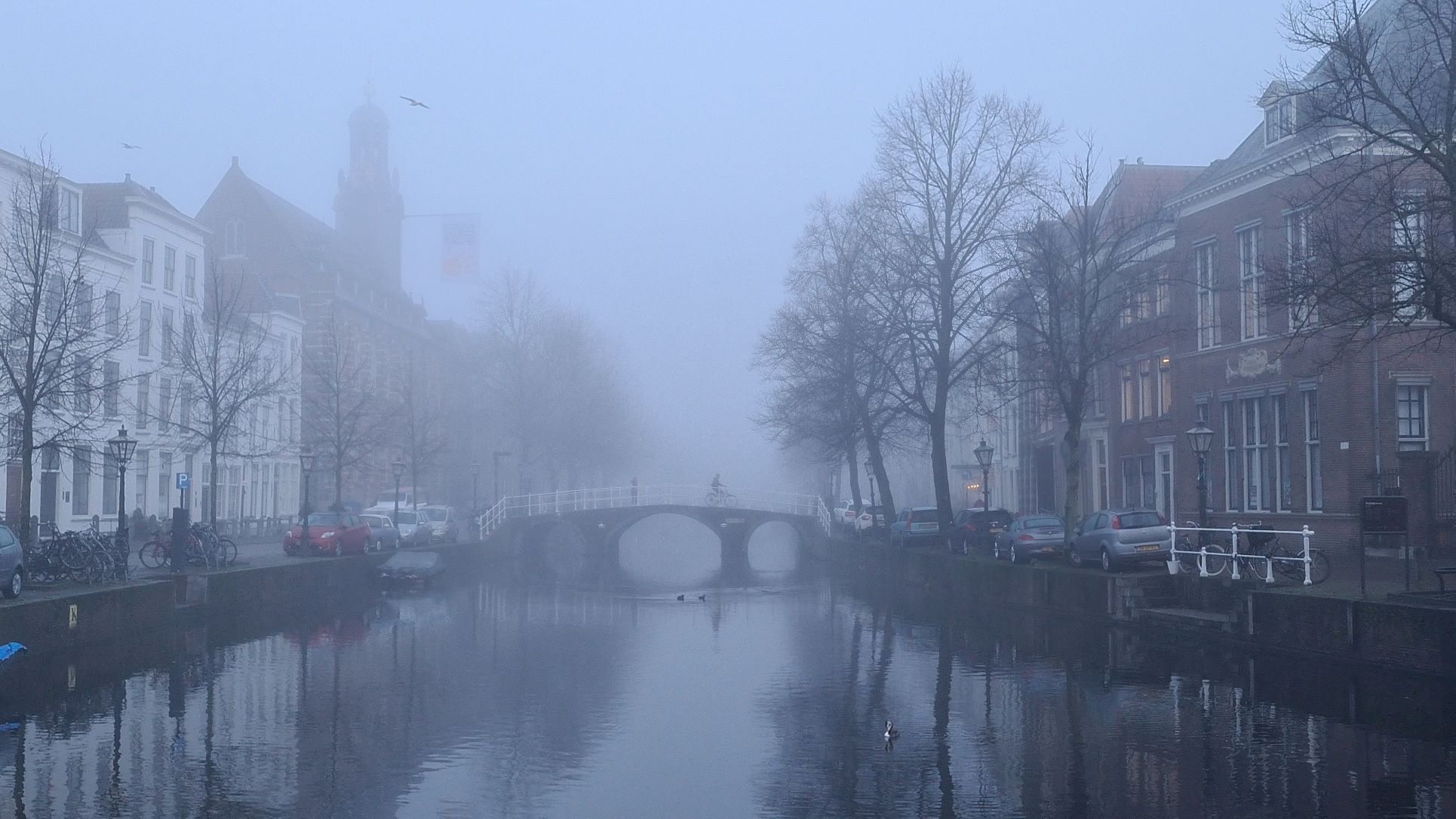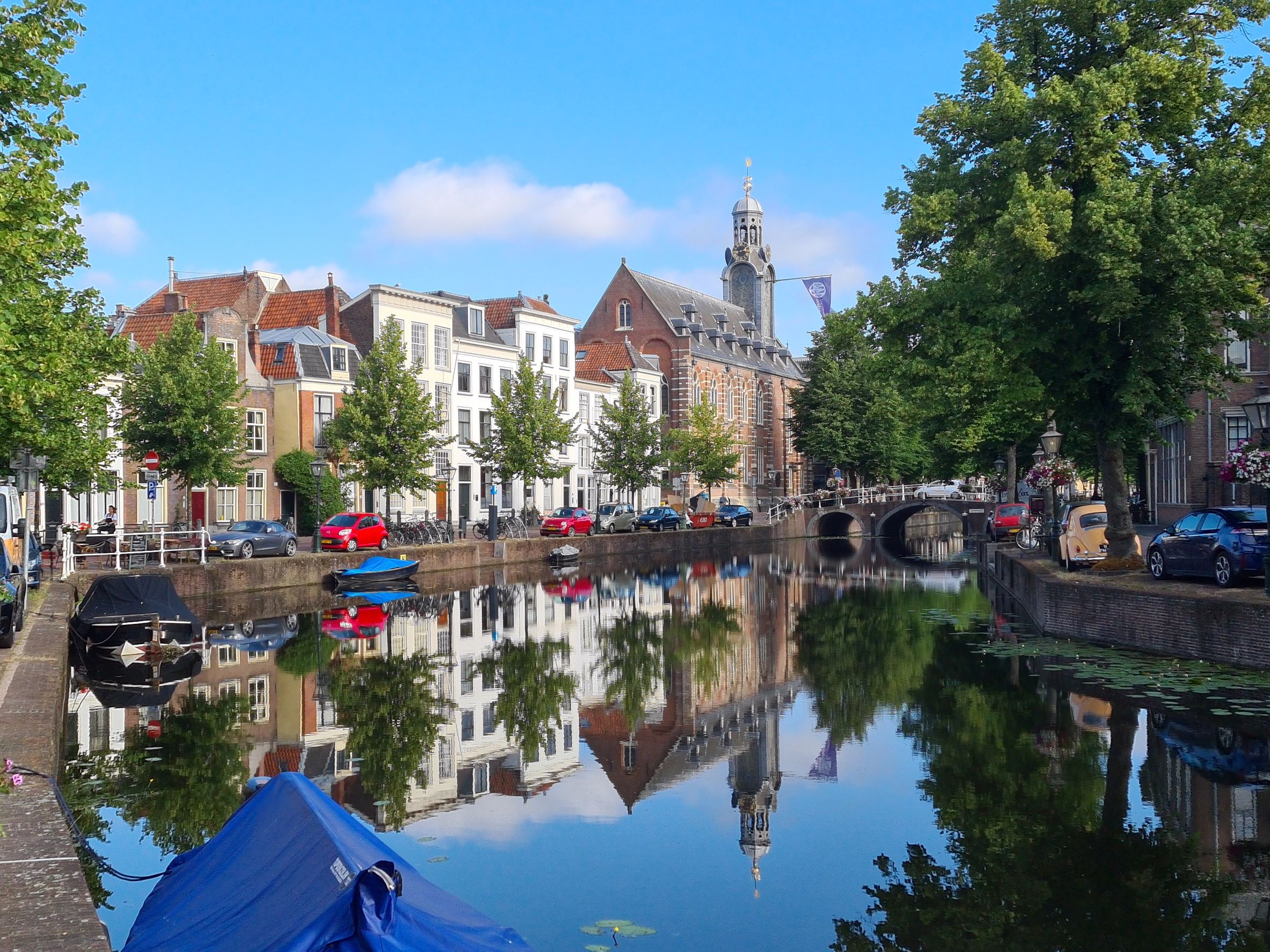
Mark Rutgers on visibility of the Board and managerial visibility
As I cycle to work in the morning, along Rapenburg to the Huizinga Building, I sometimes stop and dismount. The early morning silence and the rising sun that casts a spotlight on the Academy Building can be enchanting. On those days, I use the moment to take a photograph. I already have quite a collection. I can highly recommend the practice of briefly pausing before becoming caught up in the hustle and bustle of everyday activities.

We keep racing along, under the pressure of meetings, deadlines, social media, questions from colleagues or students. There are good reasons why the work-life balance is a serious concern. It is therefore most helpful that the Work Balance in Action group is presenting a range of concrete recommendations, requiring not only difficult choices and coherent policies, but also some small individual changes in behaviour. For example, I no longer keep my phone close at hand in the evenings and – so that other people feel less rushed – I don’t send any emails just before or during the weekend (tip: ‘Schedule send’ in Outlook).
Speaking of rushing and taking it easy, I am often asked about the speed of managerial processes. Everything that’s happening is not always clearly visible for many people. There’s a whole stream of issues that demand our attention; they may come from our Faculty or from the Executive Board, or the Ministry may require us to take action. For me, these are issues that have been discussed in meetings for weeks or even months, but others can experience the resulting decisions as unexpected. We have also learned from the Personnel Monitor that ‘the management’ needs to communicate more effectively. I take this very seriously. However, it will always be difficult, because everyone already receives too much information on a daily basis, so ‘even more’ emails and newsletters is not the solution.
To give an example of a current issue within the Faculty: the development of our Humanities Campus. This is a long-term and complex process, involving many different parties.
We have to take account of local residents, the city authority and other parties, such as the restaurants, the Hortus Botanicus and the Friends of Singelpark. Further important factors are road safety and waste collection services. Within the Faculty we need to consider the wishes of our staff and students, while not losing sight of our ecological footprint and our neighbours. We are users of the buildings, but not their owner. The Executive Board creates the frameworks, such as the available funds and the workspace norm; the Real Estate directorate then assesses whether our wishes are affordable and compares them with other faculties. Another crucial actor is the city authority, which decides whether the ideas are appropriate for the urban area and whether the right procedures are being followed, before the city council scrutinises the plan.
'I am pleased to say that we can effectively achieve our wishes within the frameworks that now apply.'
With respect to the complexity: choices we are making now are based on decisions made many years ago. The campus development is based on the Schedule of Requirements that was endorsed by the Faculty and the Executive Board in 2015. Much has happened since then: P.J. Veth and Arsenaal have been completed, coronavirus resulted in hybrid working and teaching becoming more established, and the residents of the Doelen complex rejected the alternative housing. As a result, it is impossible to adhere to the previously agreed gradual growth towards the new workspace norm; instead, we need to implement it in the new campus plan. I am pleased to say that we can effectively achieve our wishes within the frameworks that now apply; and that we can continue with the development of ‘North’ and ‘Reuvens’ on the basis of the new Urban Development Plan (as soon as it is approved by the city council, of course).
-

A selection of Mark's pictures -

-

-

I have listened to the concerns about the restrictive workspace norm. However, it is the reality we are facing, and the institutes will have to make the best possible use of the available space within this. Our workspace norm is certainly not a minimal norm; the calculations allow for a fixed workspace (i.e., no ‘desk sharing’) for everyone with a contract of 0.6 FTE or more. Yet I am very aware that this is still a profound change for many people. This is also true for the number of our own books that will be within reach; although I should mention that I don’t actually keep all my books and files in my office, either at home or at work: as long as they are reasonably close at hand and easily accessible. In the near future, we will have an up-to-date and considerably more sustainable work environment, where we can move forward for many decades to come.
During the development of the campus, we always try to keep staff and students as informed and involved as possible, through the Faculty Council, heads of department, the institutes, and so on. There are also newsletters, presentations and information sessions. Nevertheless, I still see that the consequences are sometimes unexpected for individual staff members, because of the long-term, complex process.
'Please don’t hesitate to speak to us, as members of the Faculty Board.'
I consider it the Faculty Board’s duty to make the processes and decision-making even clearer and to increase the involvement of staff and students. Partly due to the coronavirus time, it seems that contacts were much reduced, but fortunately I am now seeing many colleagues in the corridors again. Please don’t hesitate to speak to us, as members of the Faculty Board. For our part, we are also going to invite colleagues to engage in discussion with us more often, for example by organising lunches with the Faculty Board. We will let you know in the near future how these will be organised and exactly when they will take place.
Perhaps we will speak to each other soon: at a lunch, in the corridors, during a meeting or just early in the morning on Rapenburg.
